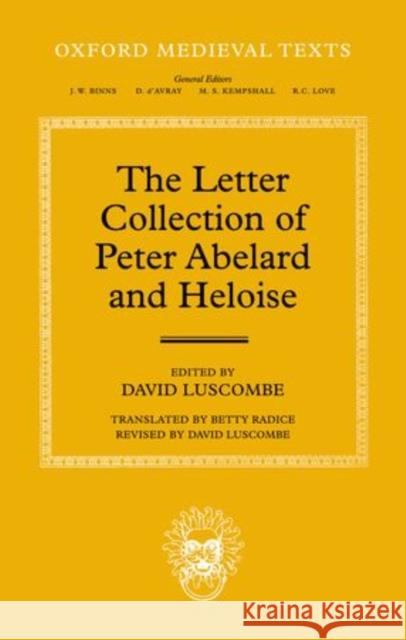The Letter Collection of Peter Abelard and Heloise » książka
The Letter Collection of Peter Abelard and Heloise
ISBN-13: 9780198222484 / Angielski / Twarda / 2013 / 792 str.
The collected letters of Peter Abelard and Heloise provide an extraordinarily vivid account of one of the most celebrated love affairs in the western world. It was an affair that developed into a vigorous quarrel and raised fundamental questions about love, marriage, and religious life, and also provided a uniquely valuable illustration of the intellectual and religious ferment that is called the Renaissance of the twelfth century.
Abelard was the leading philosopher of his time and a very public figure in France, as well as being a fiercely attacked theologian and unpopular abbot. Heloise, his brilliant pupil, lover, and wife, also became a nun and abbess, much against her will. She provoked this brilliantly written correspondence which is widely regarded as one of the finest literary compositions of the twelfth century. These letters have for many centuries given enjoyment to their readers and have inspired numerous creative imitations. They have also given rise to huge disagreements over their historical content and significance. The collection opens with an autobiography which contains the story of the calamities that followed Abelard's successes - his castration, his condemnation for heresy, and the unhappiness of the couple's separation. Heloise's letters show an exceptional outpouring of grief and bitter recrimination. Yet the correspondence closes with thoroughly serious, scholarly, and original enquiries into the origins and development of pagan, Jewish, and Christian ideals of religious life both male and female. It constitutes a fundamental source for discussion and debate about important features of thought and religion in the Middle Ages.
A new critical edition based on all the manuscripts has long been needed. Its appearance here with a facing English translation, a full introduction, extensive annotation taking into account recent scholarship, and detailed indexes will enable all kinds of readers to enjoy the letters and to join the debates which they always stir.











